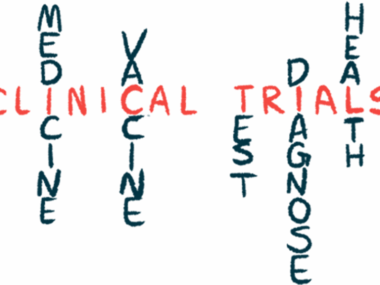Ixinity now OK’d for hemophilia B children younger than 12 in US
FDA expands approval of on-demand/preventive FIX replacement therapy
Written by |

Ixinity (trenonacog alfa) has been approved by the U.S. Food and Drug Administration (FDA) for use in children younger than 12 with hemophilia B.
This label expansion by the FDA means that the factor IX (FIX) replacement therapy, sold by Medexus Pharmaceuticals, can now be used in all hemophilia B patients in the U.S. It’s approved for on-demand bleed control and for prevention (prophylactic treatment), as well as for managing blood loss during surgery, known as perioperative use.
“We are pleased to secure approval for Ixinity for use in pediatric patients, a population that comprises approximately one third of individuals with hemophilia B in the United States,” Ken d’Entremont, CEO of Medexus, said in a company press release.
“We hope the greater availability of Ixinity will help ease the burden on children and families who face the challenge of managing hemophilia B and allow children living with this lifelong condition to enjoy more active lives,” d’Entremont added.
Ixinity now approved for all hemophilia B patients in US
Hemophilia B patients lack sufficient functional FIX, a protein required for proper blood clotting. This puts them at an increased risk of experiencing excessive and prolonged bleeding episodes, which can be painful and lead to damage and disease.
As with other types of factor replacement therapies, Ixinity temporarily provides patients with a working version of the missing clotting protein, enabling more effective blood clotting. It’s given via intravenous or into-the-vein infusions
Ixinity was initially approved by the FDA in 2015 for on-demand bleed control and perioperative management in hemophilia B patients, ages 12 and older. The treatment later was cleared for prophylactic use in that same group.
The label expansion for children younger than 12 was supported by data from a Phase 3/4 clinical trial (NCT03855280) completed in 2022. That study enrolled 21 children with moderate to severe hemophilia B who had previously been on FIX replacement therapies.
All were given Ixinity prophylactically twice per week, and the therapy could also be used for on-demand bleed control.
The results showed that the mean annual bleed rate on Ixinity remained low, at an average of 2.34 bleeds per year and 0.63 spontaneous bleeds per year. Seven children had no bleeds during the trial, and 61.9% had no spontaneous bleeds.
Most bleeds (83.8%) that did occur were resolved with one or two infusions of the therapy.
Ixinity effectively prevented and controlled bleeding episodes in [a] Phase 3/4 pediatric study. … The results thus provide further validation of the clinical utility of Ixinity as a treatment for all people living with hemophilia B.
Johnny Mahlangu, a hematologist and professor at the University of the Witwatersrand, in South Africa, served as one of the trial’s principal investigators.
“Ixinity effectively prevented and controlled bleeding episodes in the Phase 3/4 pediatric study,” Mahlangu said. “The results thus provide further validation of the clinical utility of Ixinity as a treatment for all people living with hemophilia B.”
Mahlangu also noted that the findings showed that Ixinity’s safety and pharmacological profile in children “were consistent with those observed in adults.”
Still, some expected differences were observed in the way the therapy was processed in pediatric patients relative to adolescents and adults, with the medication being cleared from the bloodstream more quickly in children. Thus, there is a possible need for dose adjustments in children that are not needed in older patients, according to Mahlangu.
On Ixinity’s updated prescribing information, the recommended twice-weekly preventive dose ranges from 35-75 international units per kilogram of body weight (IU/kg) for children younger than 12. For adolescents and adults it’s 40-70 IU/kg, but dose adjustments are always possible based on various clinical factors.
The most common side effect associated with Ixinity across all clinical trials is headache, with no particular safety or tolerability issues found in younger children.



